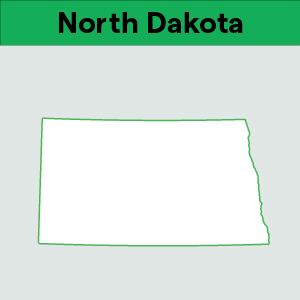Economic nexus laws by state: New Mexico
by January 24, 2025
State laws on economic nexus vary and it’s hard to keep up if you’re doing business in multiple states. We’ve done the research for you and here’s all the information you need to know about economic nexus in New Mexico.
What creates economic nexus in New Mexico?
With the recent South Dakota v. Wayfair Supreme Court ruling in favor of South Dakota, states are now free to pursue sales tax from eCommerce businesses who have a “significant presence” in their state.
Significant presence or “nexus” was previously defined as having a physical presence (ex: brick and mortar store, employee, or inventory in a fulfillment center like FBA). But with this recent ruling, now this definition has been expanded to include economic activity in a state as well. This concept of triggering sales tax responsibility because of your economic activity in a state is now referred to as economic nexus.
Most important, this now means that if you pass a state’s economic threshold for total revenue in that state , you’re now legally required to register, collect and remit gross receipts tax for that state.
While New Mexico does not have sales tax, it does have a similar gross receipts tax instead. This tax is imposed on people engaged in business in New Mexico. Engaging in business just means having, in the previous calendar year, total taxable gross receipts from sales, leases and licenses of tangible personal
property, sales of licenses and sales of services and licenses for use of real property sourced to the state.
What’s the threshold for economic nexus law in New Mexico?
- State: New Mexico
- Threshold: $100,000 in annual gross revenue from sales in New Mexico in the last calendar year.
- Summary: According to the state, remote sellers and marketplace facilitators are required to register, collect and remit gross receipts tax to the state if they meet the sales thresholds
- Full text: You can read guidance on the text of New Mexico economic nexus law here.
When did this New Mexico law go into effect or is it planned?
The law went into effect July 1, 2019.
I meet the economic threshold requirement in New Mexico. Now what?
Here’s a quick checklist of what to do next:
- Register for a gross receipts tax permit in New Mexico
- Choose a technology like TaxJar to help you manage multi-state compliance. Sign up for a free 30-day trial to see how we can help you save time!
- Connect TaxJar once to all of the places you sell
- Ensure all your e-commerce channels are setup correctly to collect sales tax
- Enroll in AutoFile and tell us how often you need to file
- Relax, you now handled your sales tax exposure. We’ll handle the rest for you.
Can you help me register for a sales tax permit?
Certainly! TaxJar offers these two options:
- Read our do it yourself instructions for every state
- Visit our registration page to request TaxJar manage your New Mexico registration for you
Who can handle my New Mexico gross receipts tax filings for me?
At TaxJar, we help more than 15,000 sellers manage their sales tax needs every month. We help your business save on submitting your returns with our automated filing service called AutoFile. Read more about how AutoFile can handle all of your returns in as many states as you’d like.
I’ve met this threshold in New Mexico, now where can I ask questions?
We recommend speaking with a vetted sales tax expert to answer specific questions for your business.
And finally…I’m close to meeting this threshold for New Mexico. Will TaxJar notify me when I reach it?
Yes! With TaxJar’s Economic Nexus Insights Dashboard, you can see where your business currently has nexus, where your business is approaching nexus, and recommended next steps on how to begin complying with sales tax in all states.
Proactive notifications let you know when you’re approaching or have reached thresholds, so you can stay in front of any changes to your nexus requirements.








